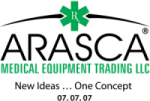COVID19 is known to enter the nose, mouth, and eyes. Therefore, people wear face masks, goggles, and face shields to protect these main entry points of the virus. But not all these protective equipment should be used by anyone because it would depend on how high your exposure risk is.
For the general public, wearing a face mask, practicing social distancing, and frequent handwashing are the three most effective and recommended way to prevent COVID19 transmission while for the healthcare workers, other protective measures such as overalls, goggles, and face shields are required because they are fully exposed to harmful particles during medical procedures as well as droplets that may come from the cough and sneeze of sick patients whom they regularly have close contact with.
This means that those who are working in a public setting but are always in close contact with other people and cannot practice social distancing because of their work, wearing face shield is recommended to lower the risk of transmission, says Dr. Thomas Steinemann, clinical spokesperson for the American Academy of Ophthalmology.
But for those who wear eyeglasses regularly, does it count as extra protection against COVID19 since it also does the same as what the face shields do for the eyes?
In a small analysis made by researchers in China, out of 276 COVID19 patients, only 16 wears eyeglasses on a daily basis, which had them wondering how eyeglasses can give extra protection form COVID19 transmission.
Given that the data is very small compared to the nearly 30 million reported cases, this statement cannot be used as a credible basis. However, we can say that eyeglasses could act as a protective barrier from the eyes which can somehow block the COVID19 particles flying in the air and could also be effective for some wearers to prevent rubbing their eyes which makes it an advantage. However, the biggest difference is that face shields are designed to cover a large area of the eyes including the whole face to protect them not only from the particles in the air and droplets from sneeze and cough that could go straight to the eyes, but also from having these particles transfer to the eyes, nose, and mouth by blocking them so they wouldn’t land on the other parts of the face. Moreover, face shields also help prevent touching the whole face which is one of the main causes of transmission through contaminated objects.
Bottomline
Eye protection for people who do not deal with medical activities is not necessary as compared to the face mask, social distancing, and handwashing because the eyes are less likely to transmit COVID19 infection compared to the nose and mouth because the virus in the eyes would take a long journey before going into the respiratory tract.
But again, if you think you cannot keep a safe distance all the time, you may consider wearing a face shield together with a face mask to get extra protection from getting infected.
Source:
https://www.nytimes.com/2020/09/16/well/live/does-wearing-glasses-protect-you-from-coronavirus.html
